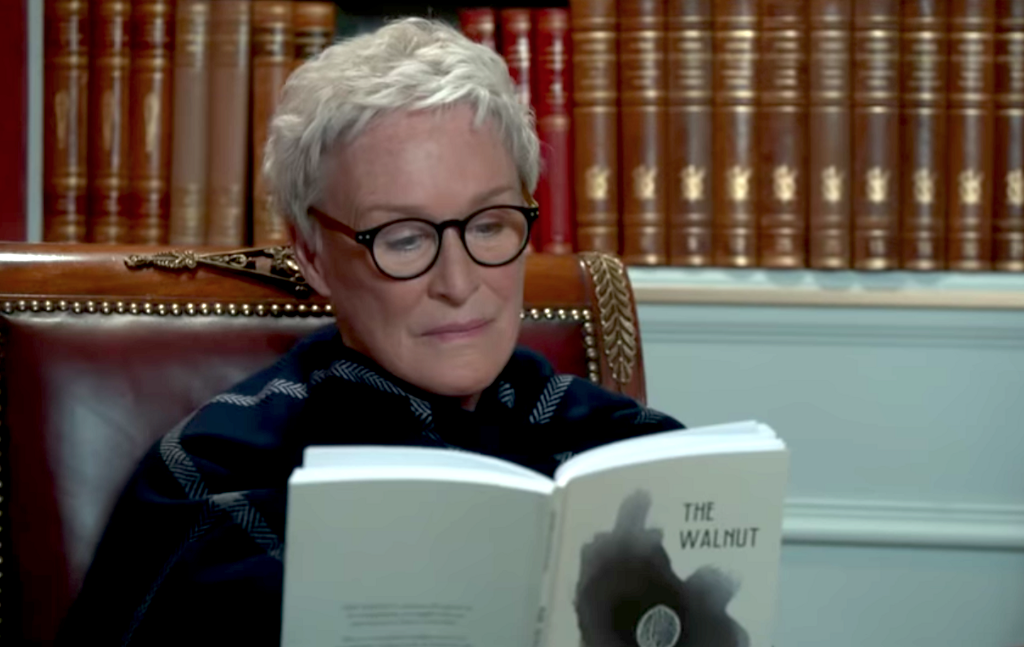Books & Culture
“Bad Boy” Publishers Aren’t Mavericks—They’re Depressingly Mainstream
The documentary "Obscene" tries to praise 1980s publisher Barney Rosset for breaking boundaries, but only shows how far we haven't come

“Barney Rosset was a freak. He was a big, crazy freak who took everyone down with him. He was a nut. He was a radical. He was abusive. He was passionate.” So says Ira Silverberg, then-editor of Grove Press, in the opening moments of the documentary Obscene: A Portrait of Barney Rosset and Grove Press before giving the film its working thesis: “He really was the last maverick in American publishing.” Daniel O’Connor and Neil Ortenberg’s rather amateur-looking documentary, made in 2007 but screened last month at the Brooklyn Public Library’s LitFilm series, purports to tell the story of that “last maverick”—a bastion of a lost, freer literary world. But by the time the film ended, I realized that the shock value Obscene and Rosset traffic in was a juvenile provocation.
Here was a glowing portrait of one of those “bad boys” of publishing who’d changed the world, and what was he being lauded for? Union-busting his own company, firing self-described feminists who challenged his editorial eye, and making a career out of blurring the line (both legal and cultural) between pornography and literature. The documentary and its subject emerge as symptoms of a broader industry that remains wilfully blind to its own toxicity, beholden to a vision of success that imagines, as Ruoxi Chen put it recently, “iconoclastic (difficult) male authors creating art alongside dashing male editors with generous expense accounts and a certain panache.” This unvarnished look at Rosset merely does away with any pretense. He’s the kind of guy publishing has always lionized, in spite of his faults—or more accurately, because of them.
He’s the kind of guy publishing has always lionized, in spite of his faults—or more accurately, because of them.
Soon after Silverberg ends his fawning words on Rosset the film, without a hint of irony, cuts to footage of a 1989 interview with Rosset in a TV show called Midnight Blue. We first see its host, Al Goldstein (bushy beard, slightly overweight), wearing sunglasses, a printed black tee, and a hunting vest, with a shotgun in one hand and a fishing rod on the other, dancing. There’s two of him, the result of one of those cheap mirrored visual effects that were all the rage in the ‘80s. Cut to: a pair of breasts. Then a graphic (“Al Goldstein’s Fuck You Department”) overlaid over Goldstein giving us the finger, followed by images of Goldstein again flipping us the bird (with an American flag behind him, of course) as he yells, “Fuck you!” Then another stripper showing off her boobs. That’s when we’re told Goldstein will be sitting and interviewing Rosset. Did I mention the logo for this show that ran from 1974 to 2003 features a naked woman whose Uncle Sam costume has been ripped off riding a dick-shaped rocket Dr. Strangelove-style? Presented within the first 10 minutes of Obscene, Midnight Blue is as cringe-worthy as you’d imagine. (You’re welcome to check it for yourself as the O’Connor and Ortenberg doc is freely available on Kanopy.) The clip made me, and several other people in the audience at the screening, laugh out loud, but just in an awkward, what-the-fuck kind of way.
Rosset’s appearance on Midnight Blue makes sense given the persona he’d long nurtured. He was “crazy,” yes. But that craziness (not to mention his privilege) was always leveraged to advance irreverent propositions. He and Grove Press, after all, were the ones who took on the fight against censorship by daring to publish D.H. Lawrence’s Lady Chatterley’s Lover, Henry Miller’s The Tropic of Cancer and William Burroughs’s Naked Lunch, and succeeded in getting court rulings that slowly dismantled a system that had denied Americans the chance to read these titillating titles. Those legal fights are at the center of Obscene, but it’s also quite clear that O’Connor and Ortenberg are more interested in the man behind the cases. Interviews with the then-85-year-old Rosset are full of wistful reminisces that all but airbrush his more controversial decisions. Even those who knew him go out of their way to sidestep behavior that’s long been glorified but which should give anyone else pause. Richard Seaver, another then-Grove Press editor casually mentions that Rosset had a habit of spending his nights drinking and waltzing into the office straight from a bar. “That’s the Irish part. The Irish love to drink, they love bars,” he adds as both explanation and excuse. It’s one of the early signs that Obscene really thinks Rosset’s bad boy antics were integral to his persona, his success, and his legacy.
Rosset was, and perhaps remains, a god to many young men precisely because he could go on a show like Midnight Blue, where he was hailed as a legend—despite having driven Grove Press almost into the ground and eventually been forced to sell—while being asked whether he thought S&M got a bad rap for being inherently “anti-feminine.” What was intended as slyly shocking in 1989 — two men discussing whether specific strands of mainstream pornography were indeed anti-women — is all the more rankling in 2019. Especially as you then learn Rosset’s office at Grove could only be accessed by his private elevator, and that a young female employee once arrived at his door at 10 in the morning for a meeting she’d arranged, only to find him sipping wine and reading the weekly porn tabloid Screw.
Around that point in the documentary, I realized that Obscene fails as hagiography (clearly its intent) because it can’t smooth over its subject’s shortcomings; the filmmakers don’t recognize Rosset’s more unseemly characteristics as shortcomings at all. His flaws are never hidden or minimized, because they’re seen as necessary aspects of what him such a force within publishing. For starters, the doc doesn’t even attempt to hide its bias when it comes to covering the 1970 protest that had been prompted by the dismissal of eight Grove Press employees (six of them women, as the New York Times reported at the time) who’d been pushing for the formation of a union. “Grove Press won’t let women be anything but secretaries, scrub women, and sex symbols,” Emily Goodman, a lawyer for the women’s liberation group, told the New York Times. Footage from interviews with the protesters are framed by Rosset, who eventually claims those union-organizing women led to the downfall of Grove under his leadership. To hear Rosset tell the story in the film, he was the target of a bunch of angry feminists who couldn’t see, as he did, that there was liberation in the erotic. “In my opinion, they were also FBI agents,” he says with a straight face to Goldstein.
Obscene presents all these various tidbits as badges of honor. Look at this guy! the documentary suggests, Wasn’t he a total badass? He drank at work! His publishing instinct was to go after stuff that turned him on! He even shut down an attempt to form a union at Grove Press! Who wouldn’t be impressed and inspired by such a “maverick”? And that’s the most depressing part of Obscene: a lot of people still would. After all, Rosset is a walking archetype of those “bad boys” popular culture in general, and the publishing industry in particular, insists are to be fawned over and idolized. The ones whose misogyny is often seen as a byproduct of their own narcissistic drive. The ones who excuse their reckless behavior as necessary collateral to their ambition. The Lorin Steins who continue to play gatekeeper. The Dan Mallorys who ride their “charm” all the way to the top. The Don Drapers of the world whom we’re constantly encouraged to see as the heroes of their own stories—whose troubled lives, we’re told, are what make them such geniuses. (Fun fact: Don Draper actually brags in Mad Men about seeing the Rosset-distributed film I Am Curious (Yellow), which famously featured a scene where a young woman kisses a limp penis.)
Rosset is a walking archetype of those ‘bad boys’ the publishing industry insists are to be fawned over and idolized.
As the credits rolled, featuring a list of the esteemed writers Grove Press had published under Rosset, I started keeping a mental list of how many were women. I needed only one hand: out of 27 names listed, 24 were men. And I was being encouraged to see that as progress, as proof of how forward-thinking Grove Press and Rosset had been. Which is, perhaps, as insidious an indictment of the publishing industry writ large as one could find.
To watch Obscene in 2019 is to reckon with hitherto unexamined biases that come to light whenever an icon of years gone by is being rehabilitated. Should his successes overshadow his shortcomings? Should his attitude be exalted when it had a hand in both? What would it mean to critically acknowledge that seismic changes in the publishing industry went hand in hand with toxic work environments and “crazy freaks” who took everyone down with them? These are questions the documentary doesn’t quite set out to answer, but they should linger in contemporary audiences who are only now beginning to see what kind of structures Rosset and his ilk kept in place while tearing down others in the name of iconoclasm. While I’ll always treasure the fact that Neruda and Paz and Rechy and Beckett and others found a fearless publishing house to print their works in the U.S. I will happily dispense with the notion that only someone like Rosset, “a big crazy freak,” could’ve made that happen. We should demand more of our idols. But also of ourselves.








